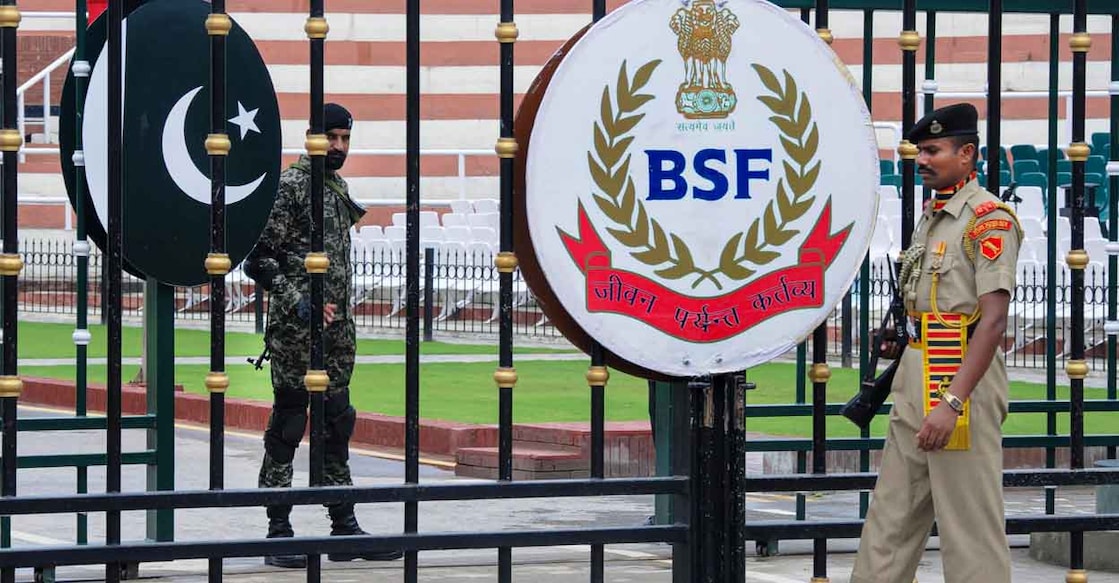Simla Agreement: Pakistan beating a dead horse

Mail This Article
Pakistan’s retaliatory action of holding the Simla Agreement of 1972 in abeyance, following the Indian decision to suspend the Indus Water Treaty is like beating a horse that it had killed years ago by violating its major provisions repeatedly. Pakistan has stated time and again that the Simla Agreement had ceased to exist. For Pakistan to raise it in the present context simply to bury it is farcical, to say the least. The tentative nature of the suspension of the Simla Agreement is itself proof that Pakistan is convinced that it is an empty threat and that it may hurt Pakistan itself.
The Agreement was historic as it came after the abject surrender of Pakistani troops in Dhaka. The objective was not only to formalise the end of the war, but also to get Pakistan to recognise Bangladesh as an independent nation. Moreover, it aimed to resolve Jammu and Kashmir once and for all by converting the ceasefire line into an international border. India facilitated the return of 93,000 Pakistani prisoners, and the two countries agreed to “settle their differences by peaceful means through bilateral negotiations or by any other peaceful means mutually agreed upon between them.”
One significant result of the Agreement was that the ceasefire line was rectified to take geographic features into account to make it an international border, but Pakistan insisted on keeping it as a Line of Control to prepare the ground for eventually declaring it an international border. Indian Prime Minister Indira Gandhi was criticised in India for making a concession on this, as Pakistan President Zulfiqar Ali Bhutto pleaded for more time to get his people to accept the change. The ruling out of the UN or others in future negotiations was a provision that was severely criticised in Pakistan.
Subsequent developments, such as Pakistan repeatedly approaching the UN and other international organisations to mediate, resorting to terrorism in a systematic manner, waging a war across the Line of Control in Kargil, and the Indian declaration in 1994 that all of Kashmir, including Pakistan-occupied Kashmir, was an integral part of India, made the Simla Agreement nothing but a relic of the 1971 war. Pakistan, for these reasons, has not taken any follow-up action on its declaration that “Pakistan shall exercise the right to hold all bilateral agreements with India, including but not limited to the Simla Agreement, in abeyance.” On the other hand, India’s decision not to abide by the Indus Waters Treaty will have immediate and long-term consequences for Pakistan.
It remains to be seen whether the Line of Control established in Simla is the target of Pakistan in disowning the Simla Agreement. Pakistan had no qualms in transgressing the LOC on several occasions, including at the time of the Kargil conflict, while India refrained from going across the border even in hot pursuit. The international community, particularly the United States, intervened to end the Kargil war essentially in appreciation of the Indian restraint and respect for the LOC. If Pakistan formally abandons the LOC as a consequence of suspending the Simla Agreement, India will be free to cross the LOC as part of its operations against the terrorists.
Pakistan’s reference to other agreements between the two countries is ominous, as it may mean the cancellation of many confidence-building measures, which have proved helpful in bilateral relations. The exchange of information on nuclear installations every year, the ceasefire agreement on the border, the agreement on the Kartarpur Corridor to facilitate pilgrimages, and such humanitarian and tactical arrangements may collapse in the process.
The immediate issue is the manner and timing of any military action that India may undertake in retaliation to the Pahalgam massacre. Ideally, we should project any such action as part of the international effort to eliminate terrorism through the mechanisms of the UN Security Council, rather than as an Indian retaliation. Terrorism as a threat to international peace and security has been recognised after the 9/11 attack, and there is an obligation for all states to counter and eliminate terrorism. Our stand to settle disputes bilaterally should not come in the way of a campaign against international terrorism.


